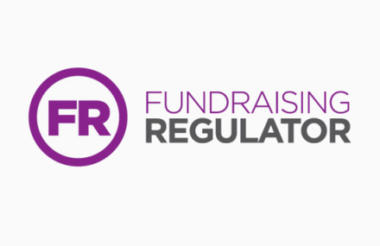The Fundraising Regulator has today issued new guidance about how to report fundraising activities, after over half the annual reports it looked at failed to comply with legal requirements.
The Charities Act 2016 requires charities to include a statement on fundraising in their annual report and lists what types of information the statement should include. It was the first year this kind of reporting on fundraising activities was required.
The Fundraising Regulator’s research
The Fundraising Regulator carried out an analysis of 106 annual reports and found that 60 per cent (63) of them contain either a statement on fundraising with too little information or no statement at all.
The 106 reports were randomly chosen among annual reports filed with the Charity Commission by charities which spend at least £100,000 a year on fundraising (and are among those paying the Fundraising Regulator’s levy). They represent a range of charities of different sizes, with fundraising expenditure levels ranging from £200,000 to more than £50m a year.
Each report was assigned a score from one to five depending on how complete the information on fundraising activities is.
Of the 43 reports that were found compliant, 19 were considered “excellent”, 16 “very good” and eight “satisfactory”. Of the remaining 63, 35 have too little information (“poor compliance”), and 28, while offering some partial information on fundraising activities in different areas of the report, don’t have a dedicated statement (“non-compliant”).
New guidance
According to the regulator, information that is often missing from the reports includes details on:
• Who carries out the fundraising and how.
• What fundraising regulation code charities have signed up to.
• How charities monitor any third parties fundraising for them.
• How they protect vulnerable people.
• How many complaints they receive.
The Fundraising Regulator has now published new guidelines on what to include in a fundraising statement to ensure full compliance. It has also published an “exemplar” report for a fictitious charity that can be used as a template.
Finally, it says that it will review compliance with fundraising reporting requirements “on a regular basis” in order to “measure improvements in reporting”.
The requirements came into place this year
Since it was the first year that this kind of reporting was required, the regulator’s analysis says that “there is a risk that some teams may be unaware of the requirements in full”.
“Corporate service and finance teams who are largely responsible for the development of the annual reports should have become aware of the requirements of the Act through professional development and membership bodies, but it’s possible they may not have. Auditors may have reminded charities to include this section, though there is no onus on them to do so because it is part of the trustees’ annual report rather than the accounts.
“Ultimately it is the responsibility of trustees to ensure compliance with the Act.”
The analysis concludes that, while the lack of compliance is “concerning”, it should also be “set in context” and that “more can be done” to help charities in this matter.
Lord Toby Harris, chair of the Fundraising Regulator, said: “Although our review has highlighted a low level of compliance with The Charities Act 2016 in terms of fundraising statements, we recognise that this is the first year of reporting in this manner.
“We are committed to working with charities, especially those with lower fundraising budgets, to promote better practice in reporting and the importance of providing a comprehensive statement.”
IoF: 'A good start but needs improvement'
Peter Lewis, chief executive of the Institute of Fundraising, said: “As the report makes clear, it’s important that charities complete their fundraising statements as part of compliance with The Charities Act 2016.
“The levels of compliance are a good start given charities were responding to new legislation, but of course this needs to improve in future years. This means fundraisers working with their CEOs and trustees to help ensure they meet all the requirements.
“We welcome the new guidance and will work with our members, ACEVO and NCVO to improve compliance in the future.”
|
Related articles











